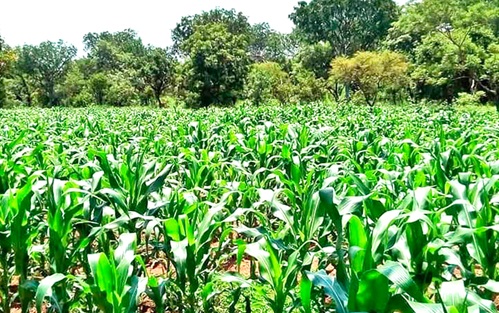
Decentralisation: Adverse impact on agric performance
Agriculture has been the backbone of Ghana's economy for centuries, providing livelihoods for its population.
Advertisement
In recent years, the government has been promoting decentralisation to enhance performance and contribute to sustainable development.
The Decentralisation
The Ministry of Food and Agriculture (MoFA) was decentralised in 1997, mandating the transfer of decision-making powers and resources from the central government to local authorities and communities.
The regional coordination councils and district assemblies are responsible for the complete functioning of the Departments of Agriculture (staffing, office accommodation and operations).
There were high expectations that decentralisation would lead to faster and prompt resolution of staff/human and logistical challenges that adversely affected extension and agricultural services delivery compared to the previous situation in which direct supervision and logistics were supplied and facilitated by the Ministry of Food and Agriculture, Accra.
Expected outcome
The approach was to ensure that no one is left behind in the development process, as it caters to the specific needs and requirements of each area and enhances local participation and community involvement in the decision-making processes.
This is supposed to result in increased agricultural productivity and diversification and promote inclusive growth and development.
Challenges
Decentralisation in agriculture has brought about several challenges, which include poor access to residential and office accommodation, staffing capacity issues, reporting difficulties, coordination problems and financing challenges.
Study findings in 2018 by the International Food for Policy Research Institute (IFPRI) indicated that although District Directors of Agriculture (DDAs) are responsible for functions, including on-farm techniques, extension services and soil and water conservation, they struggled to fulfil their mandate due to insufficient resources.
Regional and District Directors of Agriculture face challenges in fulfilling their responsibilities due to the lack of resources and staff.
The budgeting process seems to have negatively influenced agriculture, leading to declined funding for the decentralised departments of agriculture.
With limited access to technology and knowledge, small-scale farmers in decentralised agriculture may not have access to the latest agricultural technologies, modern farming techniques or necessary knowledge to improve their farming practices.
This can lead to lower crop quality, reduced yields and decreased profitability.
Inadequate funding remains a concern for the decentralised departments of agriculture. To sustain the growth and development of the agricultural sector, there should be an increased investment from both the government and the private sector.
There is often a lack of coordination among various stakeholders in a decentralised agricultural system, leading to inefficiencies in resource allocation, distribution and management.
This can result in reduced productivity and lower yields.
The current administrative structure of the Departments of Agriculture makes it extremely difficult to undertake any meaningful infrastructure to support agriculture development at the regional and district levels.
Strong agricultural infrastructure plays a crucial role in the growth and development of agriculture. A well-developed infrastructure not only boosts productivity and efficiency but also helps ensure food security, reducing post-harvest losses, and improving the overall quality of life for farmers and rural communities.
It is worth noting that the decentralised nature of agriculture in Ghana creates a kind of income inequality, as small-scale farmers may not have the same opportunities for growth and success as larger, more established farms.
This can lead to a widening gap between rich and poor farmers and limit the overall development of the agricultural sector.
Fixing the problem
To address these issues and improve the effectiveness of devolution, it is crucial to focus on reverting the Departments of Agriculture to the Ministry of Food and Agriculture.
It must be said that it is catastrophic to restrict the Ministry of Food and Agriculture to policy formulation, planning, and the performance of regulatory, monitoring and evaluation functions of governmental activities in Agriculture.
MoFA is well-positioned to provide proper infrastructure, funding and support systems in place across all regions and districts.
MoFA will ensure the right policies and programmes are designed to address the unique needs of each area additionally, fostering collaboration among farmers, researchers and policymakers to help create a more supportive environment for the growth and development of agriculture in Ghana.
The writer is the Head of the PR Unit,
Ministry of Food and Agriculture




